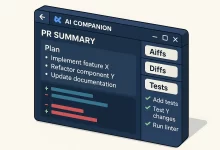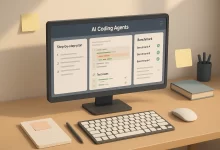I nearly spilled my coffee when I saw the headline this morning: AI job losses topped 10,000 in July alone, according to Challenger, Gray & Christmas. As someone who’s been tracking tech trends for years, it felt like a gut punch—automation promised efficiency, but at what human cost?
The outplacement firm’s latest report shows a sharp uptick in layoffs tied directly to generative AI adoption. In July 2025, private-sector companies announced over 10,000 job cuts attributed to AI-driven restructuring, making AI job losses one of the top five causes of workforce reductions this year. Across the broader market, over 806,000 private-sector positions have disappeared through July, the highest mid-year total since 2020.
The technology industry took the brunt of the wave. Firms in software, hardware, and IT services together shed more than 89,000 roles year-to-date—a staggering 36% increase versus last year. Since 2023, over 27,000 positions have been directly linked to AI initiatives, as companies replace routine tasks with automated systems for data analysis, customer support, and even basic coding.
Earlier this week, labor statistics painted a mixed picture: employers added just 73,000 jobs in July, far below economist forecasts. The weak jobs report combined with the AI-related cuts has Wall Street on edge, driving markets lower and raising fresh questions about how quickly workers can reskill in an AI-driven economy.
Entry-Level Roles Hit Hardest
Young professionals are feeling the squeeze most. Handshake data reveals a 15% drop in entry-level corporate job postings over the past year, reflecting how AI chatbots and automated workflows have hollowed out traditional entry paths. One recent grad told me she’s now focusing on mastering AI-augmentation tools—anything to stand out in a crowded job market.
Beyond Tech: Broader Economic Ripples
While tech leads, other sectors aren’t immune. Retailers announced over 80,000 cuts through July, partly driven by AI-powered inventory management and self-checkout kiosks. Tariffs and inflation compound the pain, but executives say AI optimization projects are accelerating layoffs to cut overhead.
Corporate Strategy or Social Responsibility?
In boardrooms, the debate rages: is automating roles a smart strategic play or a social risk? Companies argue that reallocating staff to high-value AI supervision tasks boosts productivity. Critics counter that without robust retraining programs, AI job losses could widen inequality and erode consumer demand.
A Path Forward: Reskilling and Policy
On the ground, some firms are partnering with vocational schools to offer rapid up-skilling in AI maintenance and data ethics. Government proposals include tax credits for companies that invest in human-AI collaboration training. As the dust settles, these initiatives could shape how quickly displaced workers land new roles in AI-powered teams.
Today’s AI job losses report is a clear reminder: the AI revolution isn’t just about flashy demos and productivity gains—it’s fundamentally reshaping careers. As I wrap up this article, I’m booking a coffee chat with a former colleague who’s pivoting into AI-ethics consulting. Maybe that will be our next success story.

 FoxDoo Technology
FoxDoo Technology











